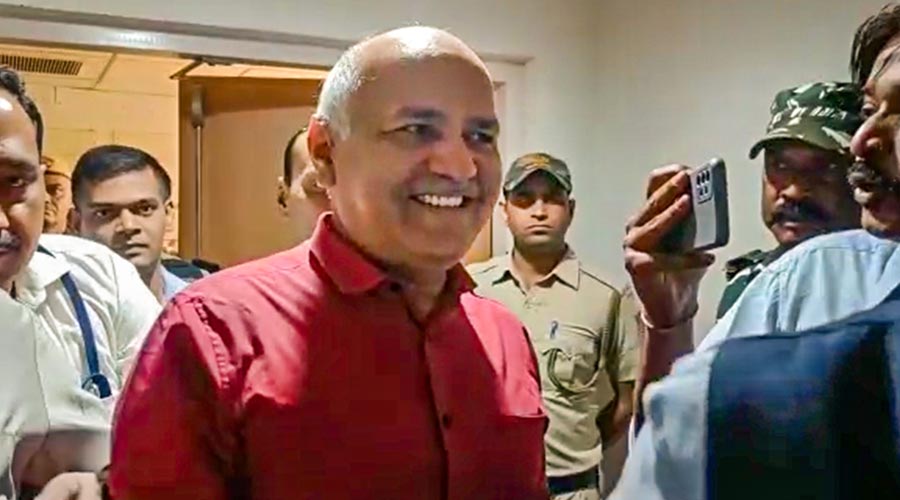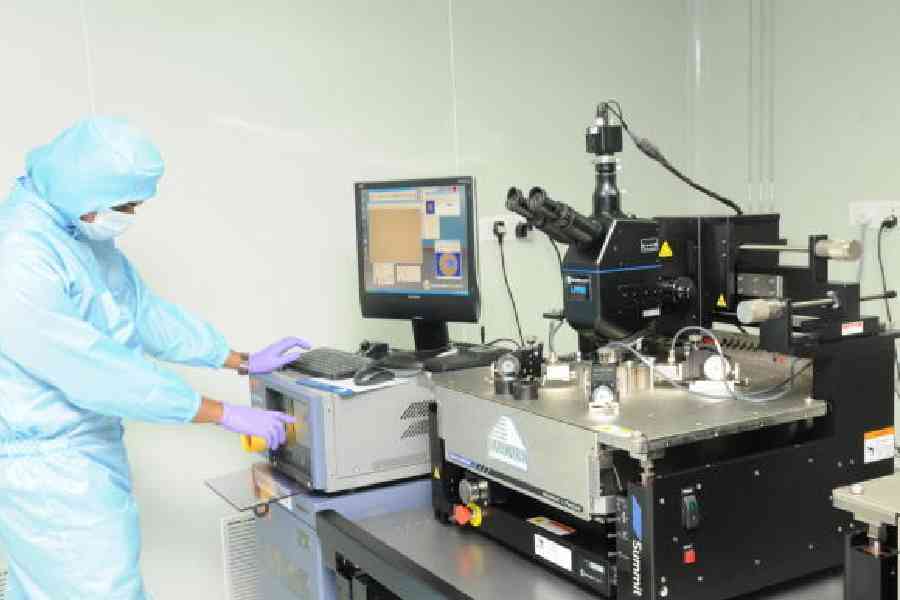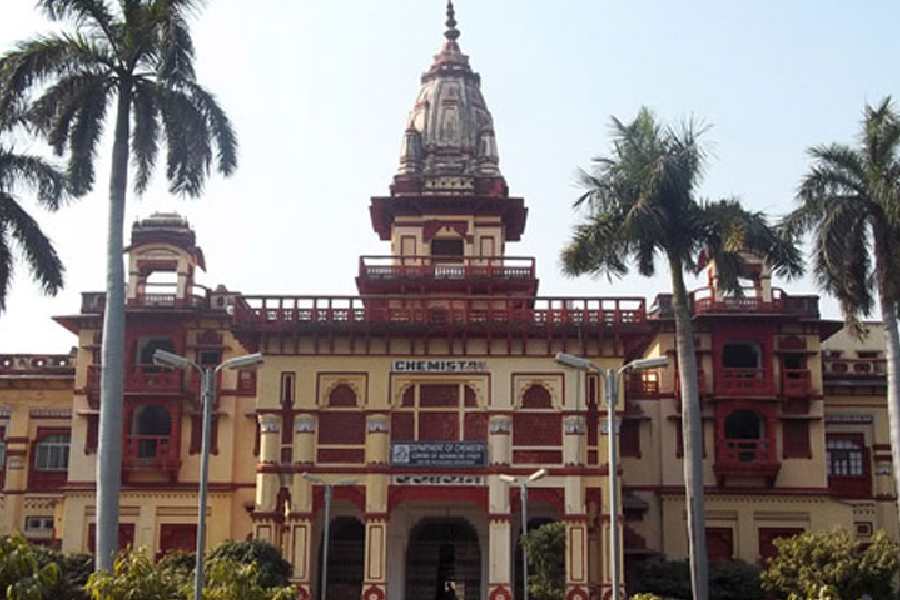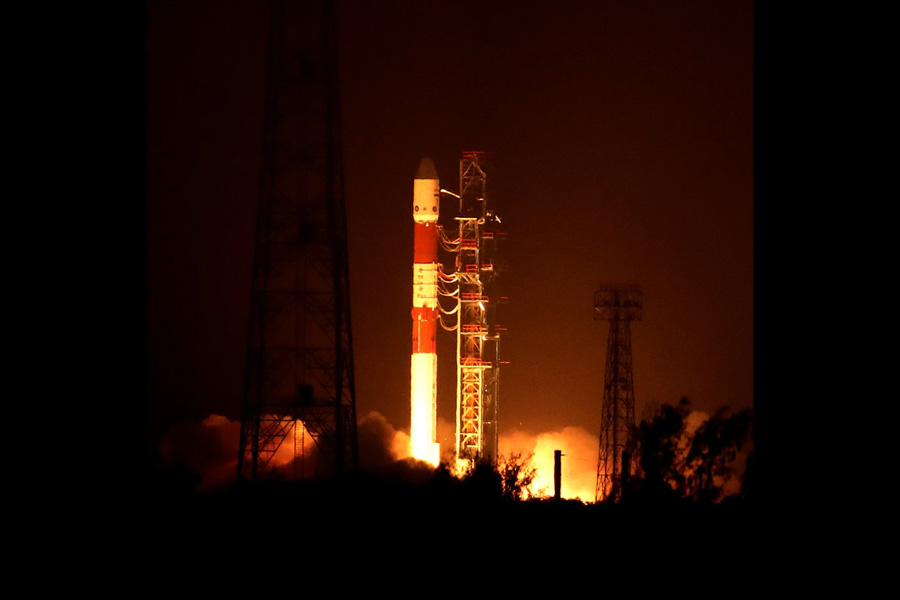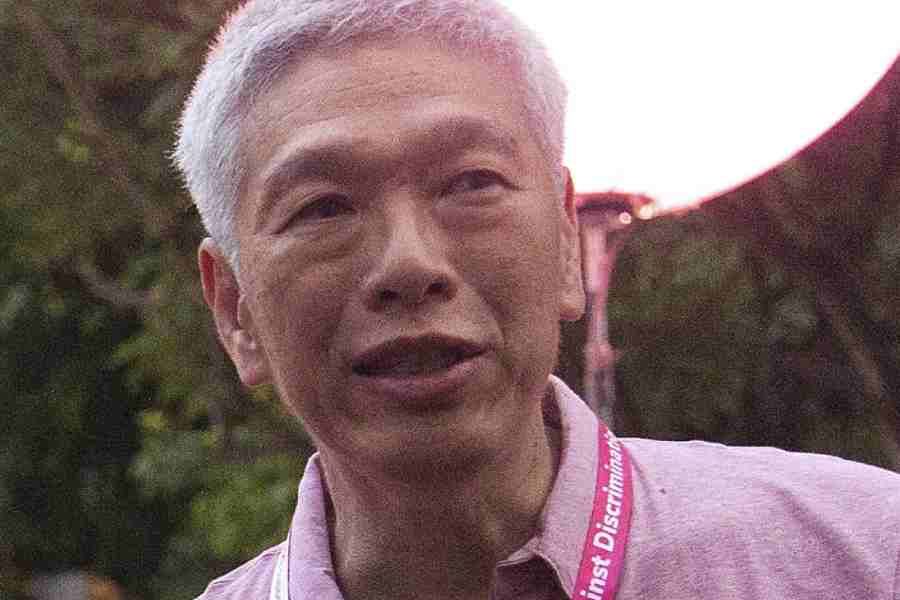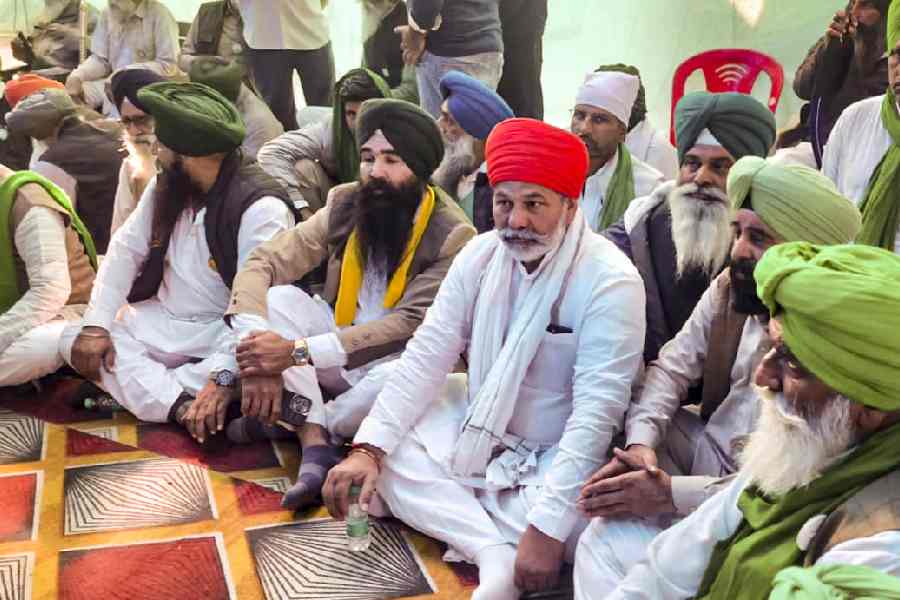The Enforcement Directorate on Friday claimed before a Delhi court that AAP leader and former deputy chief minister Manish Sisodia was involved in "large scale destruction of digital evidence to impede investigation" into the Delhi excise policy case and had changed and destroyed 14 phones.
In its remand application, seeking an extension of Sisodia's custody, the agency said the major recommendations that ultimately formed the basis for the Excise Policy 2021-22, including fixing of 12 per cent profit margin for wholesalers, were not decided in the group of ministers (GoM) meetings and instead "imported from external sources".
The Enforcement Directorate (ED) had arrested Sisodia on March 9 in the Tihar jail, where he was lodged in connection with a Central Bureau of Investigation (CBI) case about alleged corruption in the formulation and implementation of the now-scrapped policy. The CBI had arrested him on February 26.
The ED is probing money laundering charges against the Aam Aadmi Party (AAP) leader.
The application before Special Judge M K Nagapal, who extended Sisodia's custody by five days, also claimed that the investigation conducted so far indicated that Sisodia is "actually involved in the activity connected to the acquisition, possession and use of proceeds of crime" and "therefore guilty of the offence of money laundering".
In its application, the ED had sought a seven-day extension in Sisiodia's custody.
The agency alleged that Sisodia had withheld information which is in his "exclusive knowledge" and "extremely relevant to the investigation".
The facts which emerged after Sisodia's custodial interrogation included he being "involved in large scale destruction of digital evidence to impede the investigation and to erase evidence", the application said.
It alleged that during the one-year period of the liquor scam, Sisodia changed or destroyed 14 phones or IMEIs, of which only one phone could be recovered by the CBI and two were produced during interrogation by the ED.
Sisodia changed or destroyed most of these phones right from the day of the complaint by the Delhi lieutenant governor (LG) to the CBI, which was also reported by the media on July 22 last year, the application claimed.
When questioned about the reason for changing a phone on July 22 last year, Sisodia said the phone was damaged, but he was unable to answer regarding what he had done with the broken or damaged phone, it claimed.
"This conclusion of the destruction of mobile phones is based on the fact that these 11 mobile phones or IMEls were not recovered during intensive searches conducted by central investigative agencies or during interrogation," the ED said.
Sisodia had also used phones purchased in the name of other people so that he had the excuse that the phones were not purchased by him and belonged to others, the application claimed.
"The large scale destruction of digital evidence was intentionally made to destroy evidence of his involvement in the offence of money laundering by destroying evidence of handling of proceeds of crime, money trail as well as involvement or connection in the process or activities connected with proceeds of crime for the commissioning of the offence of money laundering," it said.
The application alleged that the "pro-active destruction of evidence" led to the sole inference that Sisodia made "conscious efforts to destroy evidence of the offence of money laundering".
Claiming that the fixing of a 12 per cent profit margin for wholesalers was made in collusion with a "south group", the application said from the statements of various officials of the excise department and other material evidence it was found that the group of ministers (GoM) meetings were "only a sham and there was no discussion or decision making in these GoM meetings".
The "south group" is an alleged liquor cartel that paid kickbacks amounting to about Rs 100 crore to the AAP to gain a larger share of the market in the national capital under the now-scrapped policy 2020-21.
The "south group", according to the ED, comprises Sarath Reddy (promoter of Aurobindo Pharma), Magunta Srinivasulu Reddy (YSR Congress MP from Ongole in Andhra Pradesh), his son Raghav Magunta, K Kavitha BRS leader and daughter of Telangana Chief Minister K Chandrasekhar Rao and others.
"The major recommendations presented in the GoM report (including fixing of 12 per cent commission) were neither discussed nor decided in these so-called GoM meetings. These recommendations which ultimately formed the basis for the excise policy 2021-22 were imported from external sources which Manish Sisodia has not revealed so far," the application alleged.
It claimed that according to excise department officials, who were interrogated during Sisodia's custody and also confronted with him, the department did not participate in the decision-making or in the actual drafting of the GoM report.
"The changes in the draft GoM report (from 5 per cent to 12 per cent) which is overlapping with the stay of the members or representatives of the south group… during which period a print was taken at the hotel and a document was handed over by Manish Sisodia is clear proof of the collusion with south group to increase the profit margin of wholesalers from 5 per cent to 12 per cent," the application claimed.
It alleged that two days prior to the GoM submitting its report to the council of ministers, certain parts of the final GoM report were found in the mobile phones of "south group" members.
It said during Sisodia's interrogation, he was confronted with various individuals and besides extracting his mobile phone data, the agency also took his iCloud and email dump.
The mail dump contained 1.23 lakh mails and the same was being analysed and needed to be confronted with Sisodia, the application said.
It said other "crucial information" was also revealed during Sisodia's custody and in view of the findings, the ED had summoned four people for confronting with the AAP leader.
These comprised former excise commissioner Rahul Singh, the then secretary to the deputy chief minister C Aravind, along with two others, Amit Arora and Dinesh Arora. Except for Aravind, all three are accused in the present case.
Earlier, the present court had sent Sisodia to one week ED custody on March 10.
Except for the headline, this story has not been edited by The Telegraph Online staff and has been published from a syndicated feed.

